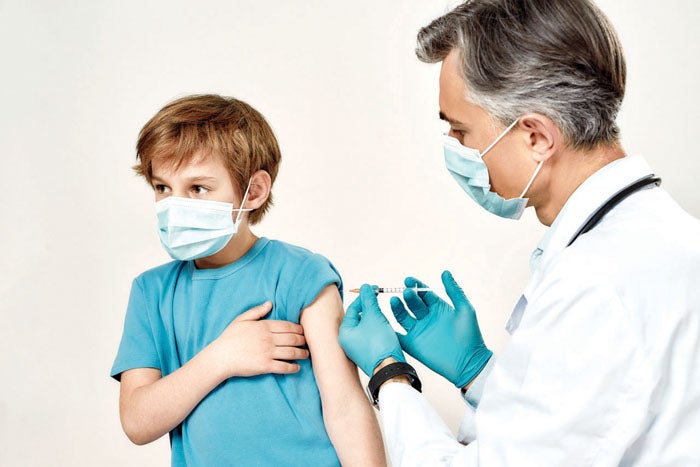Parents: Let’s talk immunizations during COVID-19
Published 12:00 am Thursday, July 16, 2020
|
Getting your Trinity Audio player ready...
|
Is your child ready to go back to school?
By Cliff Mehrtens
Novant Health
If you have children going back to school, make sure they are up-to-date on immunizations their school requires. Otherwise, they can’t enroll.
Parents shouldn’t have COVID-19 safety concerns during a visit to their pediatrician. Novant Health providers are using creative ways to continue in-person visits. In some cases, a vaccine can be administered in the parking lot while the child is in their car seat. As an added precaution, clinics have designated certain entrances and office hours for well and sick visits. Cleaning and disinfecting are top priorities at every Novant Health location, too.
Vaccines are given to children to help prevent diseases like diphtheria, tetanus, chickenpox, polio and measles, but also pneumonia and rotavirus diarrhea — two of the biggest killers in children younger than 5.
The Centers for Disease Control and Prevention describe vaccines as containing “the same germs that cause the disease, but the germs have been either killed or weakened to the point that they don’t make you sick.”
Vaccines help the immune system build up resistance to dangerous diseases.
Required immunizations for North Carolina schools
North Carolina law requires all children in the state to receive the following immunizations, according to the North Carolina Department of Health and Human Services:
- Diphtheria, tetanus and pertussis — 5 doses
- Polio — 4 doses
- Measles — 2 doses
- Mumps — 2 doses
- Rubella (German measles) — 1 dose
- Haemophilus Influenzae type B (Hib) — 4 doses
- Hepatitis B — 3 doses
- Varicella (chickenpox) — 2 doses
- Pneumococcal conjugate — 4 doses
Middle school: Students entering the seventh grade need two doses of meningococcal conjugate. The first is as they enter seventh grade or by 12 years old, whichever comes first. A booster dose is required for students entering the 12th grade or by 17 years old, whichever comes first.
‘Herd immunity’ helps all
Vaccines are effective 90% to 100% of the time. However, some children are not able to get vaccines for certain medical reasons, or because they are too young to be vaccinated. This leaves children without protection, therefore having to rely on “herd immunity.”
The CDC describes herd immunity as when “a sufficient proportion of a population is immune to an infectious disease (through vaccination and/or prior illness) to make its spread from person to person unlikely. Even individuals not vaccinated (newborns and those with chronic illnesses) are offered some protection because the disease has little opportunity to spread.”
For more information about vaccines for children, check out the U.S. Food and Drug Administration’s guide for parents and caregivers




